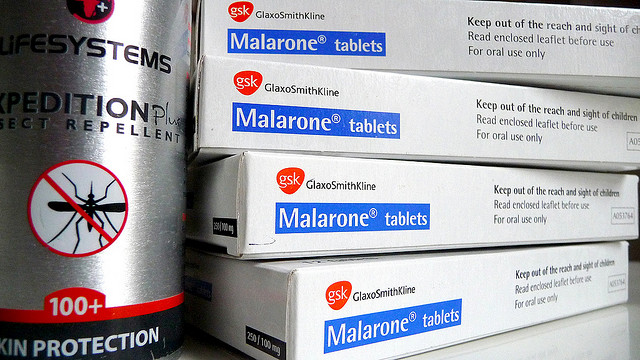
When beginning to research immunizations, travelers get frustrated quickly. There’s a lot of information out there, and it all seems pretty conflicting. That’s because this isn’t a black and white situation, and everyone has their own opinions on the matter.
All travelers have to make their own individual decisions about things like immunizations and travel insurance, so the best thing we can do is offer the information necessary to make those decisions.
Deciding which shots to get
This is perhaps the biggest decision to make, and it’s rather confusing. Hepatitis A and B are the only nearly universal vaccinations that most all travelers need. After that, it’s all a matter of where you are going and how much of a risk you want to take.
Some countries say they require proof of certain immunizations to enter, but not all of them routinely ask for this proof. Some sources recommend certain new jabs for certain areas that hadn’t required them in the past. Since most of these are very expensive and the landscape is continually changing, it’s good to do some up-to-the-minute research.
Where to research?
Travel vaccines aren’t cheap – and most people (from the US at least) don’t have health insurance that will cover the full cost of travel vaccines either. So how do you go about researching what you need?
You can start by going to your primary care physician, but unfortunately, when many people go for a travel vaccine consultation with their family doctor they’re in for a shock – your regular physician may not know any more about malaria-resistant drugs than you do. There are doctors who specialize in travel medicine, sometimes even working at dedicated travel medical clinics, bu you’re going to have to find one in your area. Once you do, however, you’ll have the benefit of an expert’s advice.
Keep in mind that while it’s a good idea to get the advice of a travel medical professional (not to mention gather information from other travelers as well as the various websites and books on the subject – more on that in a minute), you’ll still have some decisions to make for yourself.
Here are some things to pay attention to and questions to ask yourself and your doctor when evaluating whether or not a vaccine is right for you.
- Severity of Illness: If you get this disease, will it seriously harm, maim, or kill you? Is there any cure? How long do symptoms last?
- Chances of Illness: What are the chances of catching the disease? How does it vary from country to country? What can you do to diminish your chances of getting sick in the first place?
- Effectiveness of Treatment: Are the drugs you’re contemplating effective in all the countries you plan on visiting or are some areas resistant? What are the chances of developing an illness even if you get a vaccine?
- Cost: How much does the treatment cost? Is it worth spending $300 for a vaccine that prevents you against a illness that only affects .0001% of travelers?
- Drug Side Effects: Do you suffer from any drug allergies? Is there a chance of a severe reaction to the drug or even the treatments for the disease?
- Proximity to Adequate Health Care: Will you be traveling in big cities, with quick access to high quality health care, or will you be in a remote village, two days away via camel from the nearest poorly-equipped clinic?
- Peace of Mind: Are you a worrywort who will fret that every cold means you have caught the Hanta Virus? Will your fear of disease ruin your trip? Can you accept what happens if you fall ill?
- Personal Responsibility: How good are you at taking precautionary measures such as not having unprotected sex, not eating seafood, and not drinking the local water or consuming fruits and vegetables? Can you remember to cover yourself with bug spray every half hour?
Web resources: Fortunately, there are a number of resources available on the web that can help you make some of these difficult decisions.
- The United States Centers for Disease Control and Prevention has up-to-date information on its website for every country on earth. This is a great source of information about each country’s health risks and requirements, but these sorts of government departments are usually overly cautious and will tell you to get everything, which may not be necessary. There might be a health warning for a country because one small jungle area has had trouble in the past few years, but meanwhile the cities and most of the rest of the country remain safe.
- Health Advice for Travelers: This is much like the CDC’s site for US travelers, only this one is put together by the British government. There’s all kinds of great travel health information here, including a section on access to healthcare abroad.
- MASTA: Based in the U.K., the health library provides free information on diseases, health risks and safety and security. Customized health briefs with information on up to 10 countries are also available, for a charge.
- Travel Health Online: Travel Health Online provides destination and traveler information, as well as a list of travel medicine providers. You must register and consent to a user agreement to access the data, although it is free. The website also includes comprehensive information on travel advisories compiled from U.S., U.K., Australian and Canadian consular offices. Although the doctors listed on the site have not been evaluated for quality, many work in travel-specific clinics, where available (most common in large cities in western countries).
- There are some interesting threads on this subject on the BootsnAll message boards in both the RTW section and the Health and Travel section, though much of the information is dated, so take it with a grain of salt.
The rabies debate

The rabies vaccine is extremely expensive, probably the most expensive shot you’ll consider. Though not necessary to enter any country, it is usually one that doctors and guidebooks recommend. When traveling in developing areas of the world, you’ll come across street dogs and other animals often when wandering around. Areas like Southeast Asia and India also have monkeys wandering in very public places, and while you may think monkeys are cute and funny now, wait until you’ve been scowled and lunged at by one.
Getting bitten by a rabid animal is a real possibility, and while you can do certain things to prevent this possibility, sometimes no precaution can help from getting bitten. The reason that people questions getting a rabies vaccine is because of what happens after you get bitten.
Even if you have the vaccine, you still must get to a hospital for another series of shots. So the question is, “Why spend over a thousand dollars at home for a vaccine that will not really prevent the disease?”
That’s a great question and why so many travelers struggle with this dilemma. It’s almost certainly going to be much cheaper to get the shots wherever an incident may occur, so waiting and taking your chances may be the best bet. What the vaccine does is buy you more time. You don’t have to panic and get to a hospital immediately (though you don’t want to wait too long).
However, if you plan on working or volunteering with animals, or traveling in remote areas where the risk of getting bitten is high and you’re days away from legitimate medical care, then getting the vaccine is probably a good idea. If sticking mostly to cities and towns, it might be worth it to take the risk.
It’s all up to each individual.
Getting shots at home vs. on the road
These things tend to be very expensive in the country where you probably live, but usually much less so in some of the countries you’ll probably visit. Do your research. If your government or insurance plan will cover much of the cost, it should be a pretty easy decision; however, if you are paying for it all out of pocket, you might consider getting some of the more expensive jabs done on the road.
Obviously any jab you might need to gain entry into one of your first countries is not up for discussion, but if you are heading to a few countries on your way to places where you’ll eventually need them, you might consider getting them on the road. Of course some of the jabs (like Hepatitis) have a series that have to be given over a several month period, so it’s necessary to start well in advance. Again, do your research. Any large city is going to have professional health clinics you can trust, and if they are near countries that require certain immunizations, these clinics will be ready for you.
If you decide not to risk it and get them all at home, then make sure you do your homework and shop around. Prices vary wildly, and some insurance companies will actually cover certain immunizations, so make sure you check. After checking with your insurance, go see your primary care doctor and a travel doctor to get their respective opinions, then ask them both their prices. Check with city and county health clinics as well.
Malaria meds

Reading and researching malaria meds can cause a massive headache. There are so many different pills to take, and some only work in some parts of the world. For instance, one malaria med may work against the disease in Southeast Asia, but that same pill won’t work in Africa. It’s frustrating and confusing, and while there is a pill that works everywhere, it’s typically most expensive.
Malaria meds are also typically sold by the pill, and most programs require travelers to take them at least a week before entering a malaria zone and up to a month after leaving one. That’s a lot of pills, and for something that is so expensive, it really adds up. Consider getting a base amount of pills before leaving, especially if your first stop is in a malaria zone. Once in a different country, it is possible to get more pills there for much less than at home. Just make sure you do your research and know that you can get more there.
BootsnAll has tons of resources explaining malaria and anti-malaria pills, so if you’re the kind of person who really likes to dot their i’s and cross their t’s, read up for a more thorough breakdown on this important issue.
- FAQs About Malaria
- Common Anti-Malaria Drugs
- Malaria Drugs: Some of the Issues & Complications
- How to Not Get Malaria
- Malaria: What to Know When You Get Bitten
- What to Do if You Think You Have Malaria
Planning in advance
Getting on the ball with immunizations is crucial as some are a series of shots over several months. So don’t wait until the last minute to do this. You want to start researching and making doctors visits more than 6 months in advance of your departure. Hep A shots are given in a series 6 months apart in order to be most effective, so be aware of this and get on it!
Immunizations Checklist
- Start the process early, more than six months before your departure
- Research which shots are necessary for the regions you are visiting
- Research which shots are recommended for the regions you are visiting
- Start compiling a list
- Go see your primary care physician and/or a travel doctor
- Check with your insurance company to see if they cover any of the immunizations
- Shop around for the best prices-your doctor, travel clinics, city and county health clinics, hospitals-make a call to all of them
- Make an educated, informed decision on debated vaccinations like rabies
- Start making appointments-remember that shots like Hepatitis are done in a series, 6 months apart
- Get your shots, put your proof in a safe place, preferably with your passport
Photo credits: RidvanArda, angelo gilardelli, 3
